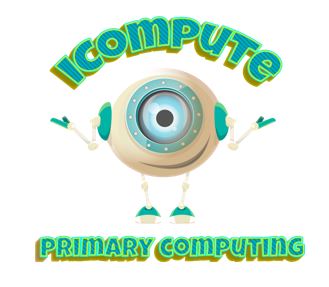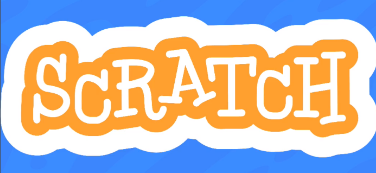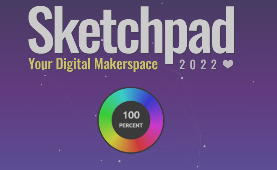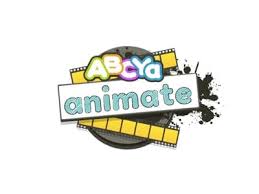Computing


Rationale
At Ravenscote, we recognise that pupils are living in a rapidly changing world in which computing is playing an ever-increasing role. We aim, therefore, to equip children with the skills to adapt to new technology and to give them confidence to use computing to further their learning and assist them in every day life.
In doing so, all pupils will have access to computing equipment and resources according to their ability and age range.
At Ravenscote, we believe that increased computing skills promote independent learning and give greater access to a wide range of ideas and experience.
In enhancing the quality of children’s work across the curriculum and should enrich the learning process.
Intent
We intend to teach computing effectively and well by providing a rich, broad and balanced computing curriculum fully mapped to the national curriculum. We aim to teach for mastery using research led computing pedagogy’s covering all 3 strands of the computing curriculum. This means the children acquire a deep, long term, secure and adaptable understanding of the subject. This will be demonstrated by how skilfully the children can apply their learning in computing to new situations in unfamiliar contexts. Every child will enjoy and succeed in computing when offered appropriate learning opportunities the aim is to use growth mindset and problem-solving approaches that enable pupils to develop resilience, persistence and confidence. All children will believe in their ability to master computing and are empowered to succeed through curiosity, tinkering and perseverance. Pupils are taught through whole class, interactive teaching, with pupils working together on the same lesson content at the same time. Lessons are sequenced so that concepts are developed in logical steps with particular attention given to fundamental concepts. This ensures that all children can master concepts before moving to the next stage with no pupil left behind. Curriculum equity is offered with all pupils being given the time and opportunity to fully understand, explore and apply skills and ideas in different ways, in different situations and in different subjects. This enables pupils to fully grasp a subject and understand the relevance of their learning.
Implementation
At Ravenscote we teach the iCompute scheme of work. In all year groups, a teacher will plan computing using the medium term planning document provided, this includes the learning objective, skills for success, resources, vocabulary and any useful links. Additionally, it highlights the core computing strand covered in each unit.
Planners will ensure lessons are bookended with the skills they will be using. Pupils then self-assess at the end of each lesson using their skills maps and reflect on their learning. This also helps pupils to develop an understanding of how their learning has progressed and offers an opportunity to recap on key vocabulary and prior learning. In some topics, pupils save progress and build upon their project across multiple lessons resulting in a digital artefact that highlights their recent learning. Children will upload two pieces of work to Google Classroom within a topic to demonstrate and record the progress that they have made.
Computing is taught for 1 hour each week within the computing suite, using the desktop computers as well as recording devices for certain topics (e.g. cameras) Outside of this time, children have access to iPads which enable them to carry out research in other subjects as well as interactive features such as quizzes.
Additionally, training was given on being able to use all the features of the smart notebook with the interactive white boards for use in all subjects.
As a school, we have also experienced training from Nina Jackson on many tools to use to engage and support out learners using technology.
Online safety day takes place annually. This provides the opportunity to engage with technology in different ways e.g. a social media trail around the school which encouraged them to think deeply about how much personal information can be given away in social media posts. They also hear from outside speakers, take part in drama activities, and use the Now Press Play headphones to engage in a story related to online safety. Every half term, each year group have a lesson on Online Safety following the iCompute Online Safety lessons as well a question related to the 4C’s in every computing lesson. Within year groups, children also have a half termly Collective Worship about an area of Online Safety.
Impact
Computer science: pupils are able to understand the principles of information and computation, how digital systems work and how to put this knowledge to use through coding, programming and problem solving.
Digital Literacy: pupils can express themselves and develop ideas through evaluating, investigating and predicting. Pupils are confident in understanding how to use a variety of technology safely, including online.
Information Communication Technology: pupils are able to use technologies effectively, select use and combine a variety of software on a range of devices and present, evaluate and analyse their results and findings.
The skills learned build on prior learning and are suited to the year groups abilities/experiences to allow them to access it.
The skills maps allow an understanding of the confidence in the skills of each lesson, to see where the gaps lie in order for the pupils to progress.
Please click here to access our Computing Policy document.
“I really enjoy coding on Scratch and creating games.”
“My favourite topic is Kodu because I like making a game and I have learnt how to add more levels which makes it more fun to play!”
“I loved the unplugged lesson where we pretended we were the internet to see how messages were sent. It was funny how many of the messages got lots because the routers were so busy.”
The following useful websites may aid with your child's learning.







